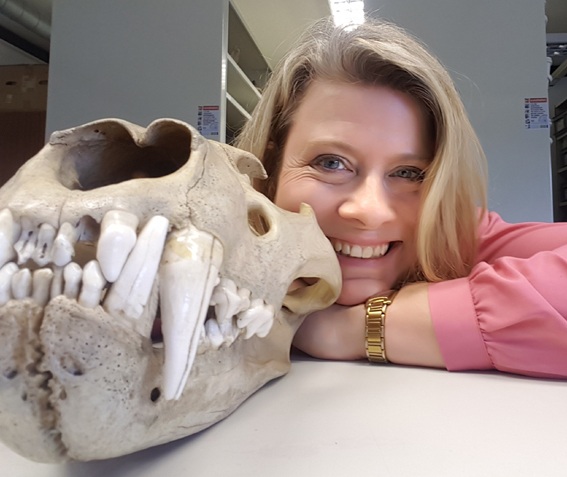THE remains of woolly rhinos, arctic foxes, wolves and aurochs are among findings in a cave in Ebbor Gorge dating back 70,000 years.
Professor Danielle Schreve, a leading palaeontologist at the University of Bristol, revealed the extent of the finds at a fascinating talk for supporters ahead of Wells Festival of Literature which takes place in October.
A chance sighting 25 years ago of a small opening high up on the gorge, near Wells, led to the discovery of Gully Cave, now considered to be the most important cave in Western Europe.
The entrance, no wider than a doorway, and obscured by brambles in the National Trust-owned gorge, was first spotted in 2005. Initial investigations looked promising and excavation began in 2006.
Since then the remains of 6,000 mammals and birds have been found, among them many voles and shrews, their tiny bones most likely deposited in owl pellets.
“Gully Cave is an exceptional site that provides a rich record of environmental change, and holds the key to understanding how animals coped with climate variations over at least 70,000 years,” said Professor Schreve.
“The past tells us how communities are constantly in flux as ice ages give way to warmer periods.”
The dig started in the small upper cave, but excavations led to the later discovery of a lower entrance which bears were able to access, their bones found crushed by a cave roof collapse.
Other finds have included young reindeer and hyenas, which became extinct in Britain 14,500 years ago.
There have been few signs of human activity, probably because of the presence of the pack-hunting hyenas, bar the discovery in 2016 of the first of two small pieces of struck flint.
The dig continues under the professor’s leadership, with each new level of multi-layered Mendip stone offering up new finds from the past.
“Palaeontology gives a good insight into evolution as it goes back thousands of years,” she explained, highlighting how fossil evidence is playing an increasingly vital role in
tackling modern conservation challenges, including nature restoration and species reintroductions. Anyone who wants to find out more, or donate towards the Gully Cave project, can do so via www.justgiving.com/page/gullycave


